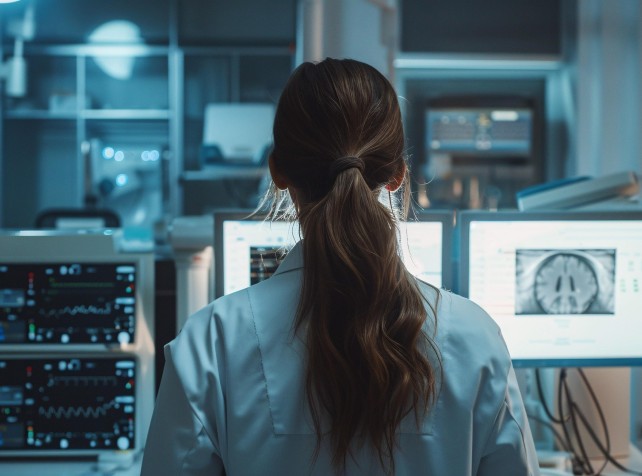Healthcare is changing fast. More people now want care that’s made just for them, something that matches their body, lifestyle, and personal story. Your health is like a puzzle. Everyone’s puzzle pieces, like your genes, daily habits, and even your emotions, are different. AI is now helping doctors put those pieces together more precisely than ever before. That being said, can a machine really deliver care that feels personal and human? Let’s take a look.
Thanks to AI, healthcare is becoming more precise. AI can quickly go through huge amounts of health info, so doctors can detect issues fast. At Monash Health, Patient Watch, an AI-powered early warning system, is used to monitor patients and identify who might get worse, helping doctors respond earlier. This means fewer people return to the hospital soon after going home.
Subscribe for FREE to the HealthTimes magazine
Other industries are also using AI to personalise their services. For example, retail stores use AI to suggest items people might like, based on past purchases or browsing patterns. AI also helps run online games, including pokies, to ensure fair play and offer personalised suggestions based on player habits. Many reliable online casinos featured in the
most popular list of real-money pokies platforms use this technology to power verified algorithms and transparent features. This same functionality is used in healthcare to help make safer health-based decisions.
In healthcare, to track your heart rate, how well you sleep, and how active you are, doctors use everyday devices like smartwatches. AI looks at this information to suggest health advice or alert doctors if something doesn’t look right. Meanwhile, chatbots and virtual helpers make it simpler for people to handle conditions like diabetes and anxiety.
Beyond everyday support, AI assists doctors in giving each cancer patient a tailor-made treatment based on their unique genes. This often means a better chance of getting healthy. Some researchers are even
developing ‘digital twins’, virtual versions of a person’s body, so doctors can test treatments. When healthcare perfectly fits a person's traits and data, it creates more effective treatments. This 'better fit' approach makes healthcare more available and affordable.
It's not just doctors that AI helps; it’s also changing how new medicines are made. Scientists now use AI to find drugs more quickly and to guess how well they’ll work for different people based on their genes. In the future, this could mean getting medicines perfectly designed for you.
However, AI is not perfect. One big issue is bias. If an AI system is trained mostly on data from just one group, like white men, it might not work as well for women or people from different backgrounds, leading to missed problems or unfair treatment. Another issue is that AI can’t feel. It doesn’t understand when someone is scared, confused, or in pain.
So, can AI make healthcare more personal? The short answer is yes, it can help a lot. AI can look at your health info, warn doctors if something seems wrong, and suggest treatments that have helped people like you.
However, no matter how advanced the technology becomes, it still can’t replace the care and emotional support that only humans can provide. A machine doesn’t understand your fears, your values, or what’s happening in your life, or pick up emotional nuances. That kind of understanding is something only real people can truly connect with.
This is why AI works best when it teams up with doctors and nurses. For instance, radiologists rely on AI to detect tumors more quickly, surgeons use AI-guided tools for accurate procedures, and nurses depend on AI alerts to identify early warning signs when a patient’s condition starts to change. With AI doing the basic work, doctors and nurses can spend more time caring, comforting, and deciding what's best.
By combining AI with human oversight, healthcare workers can save time, prevent mistakes, and give patients better care. With the right balance, AI can make care faster, more accurate, and more personal.












